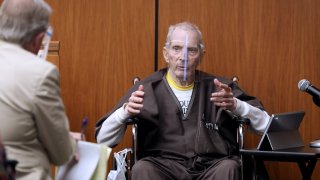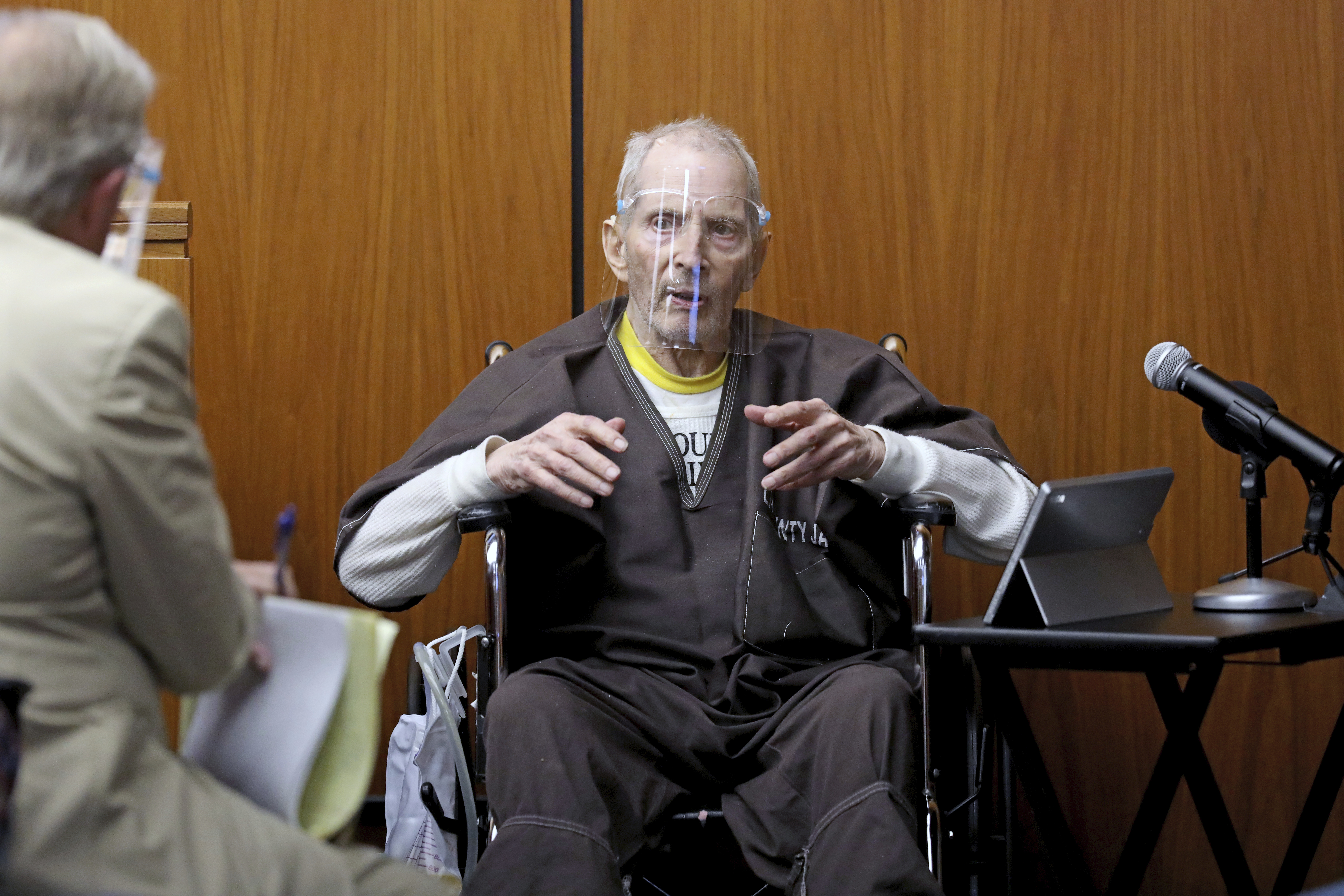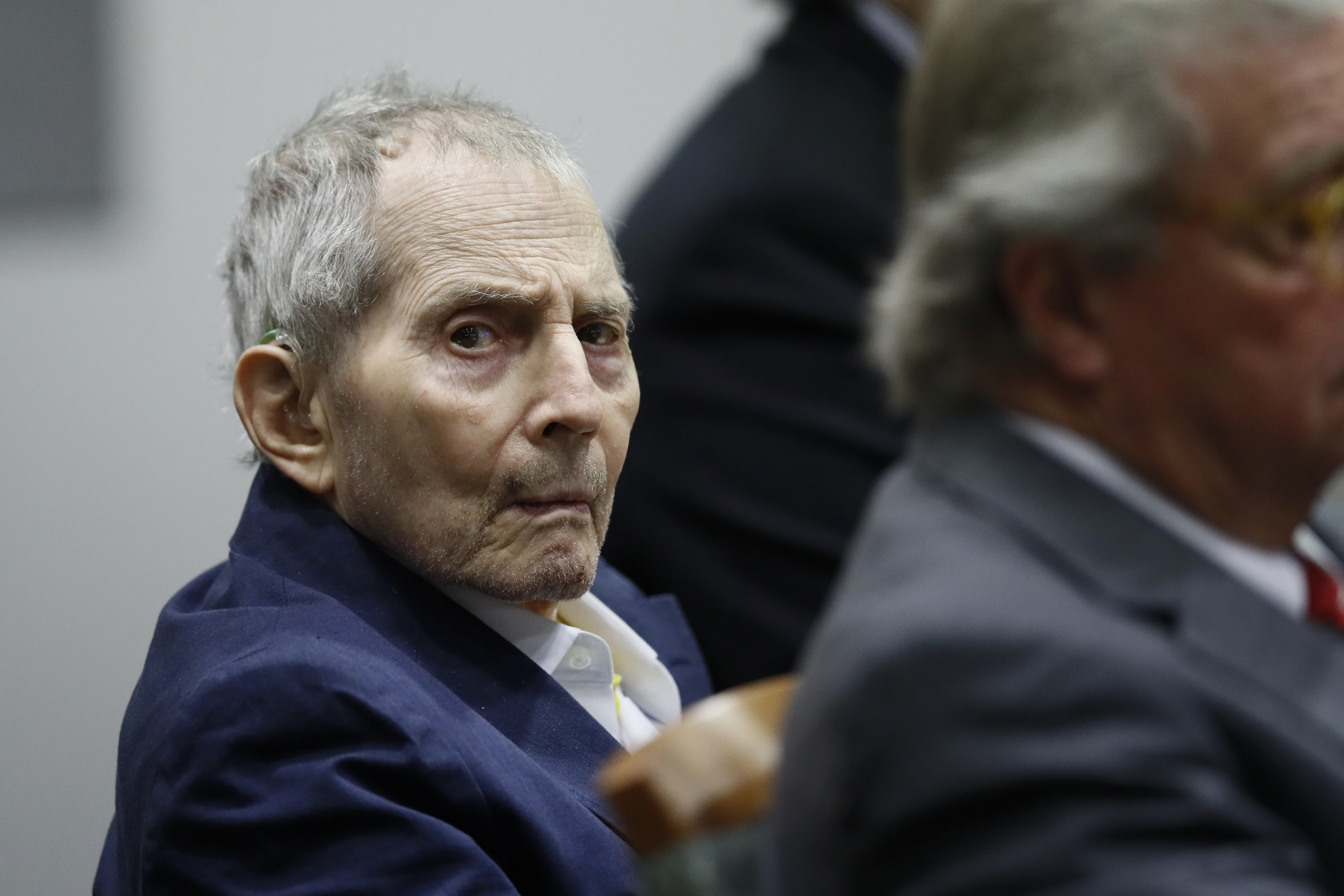
New York real estate heir Robert Durst testified Monday that he lied for decades about sending police a note directing them to the dead body of his best friend because he feared it implicated him in the killing.
In fact, it was so hard to fathom that Susan Berman’s killer was not the same person who sent police a note directing them to her "cadaver" that even Durst sometimes questioned the plausibility of that explanation.
"I have difficulty believing it myself," he testified in his defense in Los Angeles County Superior Court. "It’s very difficult to believe, to accept, that I wrote the letter and did not kill Susan Berman."
Durst, 78, has denied killing Berman during four days of testimony at his murder trial.
Durst, the eccentric estranged heir to a commercial real estate fortune in New York, is only charged with Berman's December 2000 killing but prosecutors have introduced evidence linking him with two other deaths.
Get Tri-state area news delivered to your inbox. Sign up for NBC New York's News Headlines newsletter.
Los Angeles prosecutors say Durst killed Berman to silence her before she could tell New York investigators how she provided an alibi for him when his first wife vanished in 1982. They say he also murdered a Galveston, Texas, neighbor in 2001 when the man discovered his identity while he was in hiding after New York police reopened the investigation into his wife's disappearance in 2000.
Durst has denied killing Kathie Durst and has never been charged with a crime connected with her disappearance. Her body has never been found, but she has been legally declared dead. He was acquitted of murder in the killing of Morris Black in 2001 after testifying he shot the man in self-defense during a struggle for a gun.
Durst, who is frail and suffering from a series of health problems, spoke in a soft, raspy voice as he took his chances trying to persuade jurors he did not kill Berman. He showed no emotion describing how he found the body of Berman, his longtime pal who served as a spokeswoman when Kathie Durst went missing.
One of the key pieces of evidence linking him to Berman's killing was the so-called cadaver note directing police to her address after she was killed.
Durst said he arrived at the home and found Berman dead on the floor with what appeared to be blood pooling behind her head after he tried to lift her from beneath her arms. He initially thought she was injured from a fall, but eventually concluded someone had killed her.
He tried calling 911 from her home, but the phone was dead. He decided to leave the house after hearing neighbors walking by and thinking he would be suspected if he was found inside with the body.
Durst said he stopped at a pay phone near Sunset Boulevard and dialed 911. When the dispatcher asked his name, he didn't want to disclose that. He considered providing a phony name but decided not to report the death by phone because his distinct voice would eventually be recognized on the recording.
"I decided that instead of calling 911 I would send police a letter telling them that Susan was dead in her house," Durst said.
He mailed a note to police that simply said, "CADAVER" and included Berman's address. The envelope misspelled Beverly Hills as "Beverley."
Durst said he didn't remember the details of writing the note because he was in a fog after taking an opioid pain-reliever the night before for a migraine headache.
Durst said he had always denied writing the note — including to documentary filmmakers who confronted him with a letter he once sent Berman with nearly identical handwriting and the same misspelling of Beverly.
His lawyers acknowledged Durst sent the note before the trial started and have left it up to Durst to explain his actions directly to jurors.
Durst denied killing Berman and said he had no motive to kill her. He denied that Berman, who was was in financial trouble and had been supported by him over the years, had been blackmailing him.
When Durst wraps up his questioning from his lawyer, he is expected to come under withering cross-examination from Deputy District Attorney John Lewin.
During arguments Monday over evidentiary issues, Lewin said Durst had repeatedly lied on the witness stand.
"He has perjured himself probably 100 times and that's not hyperbole," Lewin said. "He's testified inconsistently with other statements he's given under oath."



